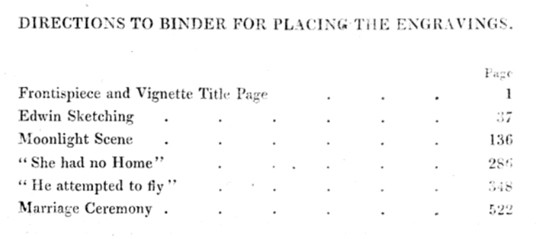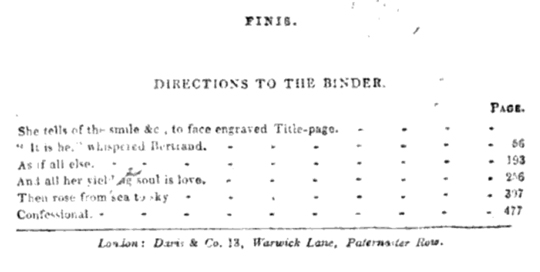Mrs. Kentish, a something of’s; and various subjects; and about
The expression “a something of” appear in all (? three of the novels written by Mrs. Kentish; here are their contexts, and bibliographic and other information for each.
Mrs. Kentish (?-1841)
other (non a-something-of) titles : other
sources : end of this page.
this page is an extension of asfaltics 2724 : a something of’s
▌ bar at left returns to top of page.
![]()
- Poems on various subjects ; by Mrs. Kentish, resident at St. Salvador, Brazils. Second Edition (London, 1821)
Harvard copy/scan (via hathitrust) : link
- a something of ethereal delicacy; even the library was so selected
There is so much real dignity in virtue, — it is so irresistible when it irradiates the countenance of a young and lovely female, that despots and tyrants have trembled beneath its glance. Here, it awed the libertine, although it could not reclaim him. It blended the respect due to a higher order of beings, with the warmest passion of which such a heart was capable; and so much had the last few hours heightened his adoration, that he would have given worlds to have gained her hand, but that was impossible!
Being so, however, he had determined to possess her; for this purpose he had long remained in ambush, watching his moment, whilst his little artful auxiliary took care to inform him of every thing that transpired, or was likely to transpire, at St. Clair’s cottage.
For this purpose he had taken this elegant retreat, and furnished it in the style he conceived best suited to a refined taste. And even the library was so selected, as to mingle the choicest productions of the sage, the poet, and the philosopher.
This envied treasure was now in his possession! Theodore no longer his rival! her former affection for him overcome, or sinking under a just resentment and outraged pride, (the very moment most favorable to his hopes).
Her brave father far away! But then, she was scarcely convalescent from a long and severe indisposition! and there was a something of ethereal delicacy in that lovely [271] form, that whispered “there is a power more resistless than thine, which may free her from thy grasp.”
Grenville’s selfishness was alarmed; he resolved to assume the sentimentality of a hopeless lover, and to have an infinity of patience, in order, with the greater certainty, to secure his victim. He, therefore, submissively left the chamber.The Maid of the Village ; Or, The Farmer’s Daughter of the Woodlands. By Mrs. Kentish (London, 1835) : 270 : link
same (Indiana U copy/scan) (via hathitrust) : link
- It may be, still a something of the day,
When they were braided“There is given
Unto the things of earth, which time hath bent,
A spirit’s feeling; and where he hath leant
His hand, but broke his scythe, there is a power
And magic in the ruined battlements,
To which the palace of the present hour
Must yield its pomp, and wait till ages are its dower.”
“Surviving all,
Charms, kindred, children, with the silver grey
Of her long tresses, which might yet recal,
It may be, still a something of the day,
When they were braided, and her proud array
And lovely form were envied.”
BYRON.heading of chapter 45, The Gipsy Family ; Or, The Elfin Boy. An Original and Highly Interesting Tale. By Mrs. Kentish. Illustrated by engravings. (London, 1838) : 423
BL copy/scan (via google books) : link
Directions to binder for placing the engravings.
source : back of title page : linkFrontispiece and Vignette Title Page . . . 1
Edwin Sketching . . . 37
Moonlight Scene . . . 136
“She had no Home” . . . 286
“He attempted to fly” . . . 348
Marriage Ceremony . . . 522
- and this mysterious event begins to have a something of reality in its conclusion; Heloise was half ready to recognise her aerial being
Heloise blushed deeply.
“Yes, it was Albert to whom we were indebted for the musical treats we have so often enjoyed, and this mysterious event begins to have a something of reality in its conclusion.”
“A mingled sensation of pain and pleasure stole over the heart of Heloise. Naturally an enthusiast, her soul had in a manner devoted itself to the imaginary being her fancy had formed.
But the moment which was to put this to the test, at length arrived; and during the first hour passed in the society of Albert Count Lindorf, Heloise was half ready to recognise her aerial being.
Fordyce says, “The sentiment of a tender liking suddenly awakened in the soul by the physiognomy, deportment, or conversation, as denoting an internal character, formed to attract a particular mind, we conceive to be a thing perfectly compatible with the correctest feelings and purest ideas.”
Let not then the cold-hearted and severe accuse her of levity. The heart of Heloise was alive to the truest sentiments of virtue and delicacy, and unsullied as the mountain snow.
The next day was a propitious one.The Gipsy Daughter; Or, The Noble Orphan. By Mrs. Kentish (London, 1839) : 153-154
BL copy/scan (via google books) : link
Directions to binder
source : bottom of 672 : linkShe tells of the smile &c., to face engraved Title-page
“It is he, whispered Bertrand.” . . . 56
As if all else . . . 193
And all her [yielding ?] soul is love . . . 256
Then rose from sea to sky . . . 397
Confessional . . . 477
- a something of ethereal delicacy; even the library was so selected
![]()
Mrs. Kentish, other by
- The Two Friends ; or, The Dying Fawn ; A Tale, Exemplifying the disastrous consequences which invariably result from thoughtlessness and versatility. By Mrs. Kentish, author of Conversations between Henrietta and her Mamma, &c., &.c. Embellished with nine elegantly-coloured engravings. (London [1832])
BL copy/scan (via google books) : link - Conversations between Henrietta and Her Mamma. By Mrs. Kentish. (London, 1835)
Bodleian copy/scan (via google books) : linka story contained in this volume, “The Grandfather’s Easy Chair,” appears in The Pearl; or, Affection’s gift for 1840. A Christmas and New Year’s Present. (Philadelphia: Henry F. Anners, 1839) : 150-164
NYPL copy/scan (via hathitrust) : link - How to Be Happy : or, The Cottage of Content; The Cottage on Fire; and The Water-Cress Boy. Embellished with sixteen neatly colored engravings. By Mrs. Kentish. (London, 1840) BL copy/scan (via google books) : link
![]()
Mary (Knowles) Kentish (?-1841), poet, novelist, resident for some time in Brazil...
- see Christopher Stokes his blog Maddalo / Thoughts of some description / Lost Poets #1 : Mary Kentish (12 August 2018) :
link
20250321